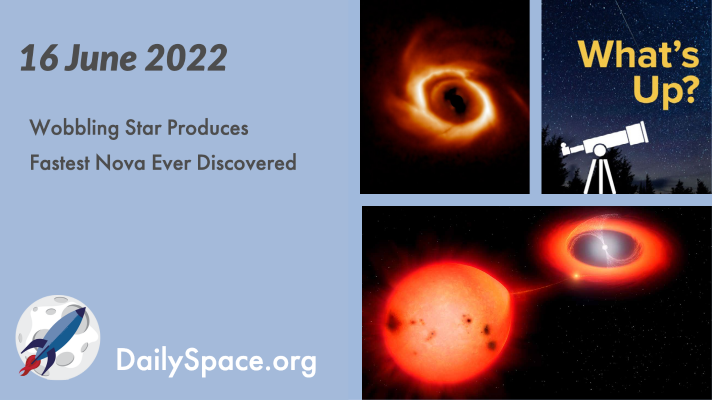
Jun 17, 2022 | AAS, Asteroids, Daily Space, Earth, Exoplanets, Nebulae, Sky Watching, Spacecraft, Star Forming Region, Supernovae, The Sun, White Dwarfs
Observations of V1674 Hercules reveal a nova produced by the white dwarf star that dimmed in only one day. Additionally, the strange star wobbles every 501 seconds, producing flashes in visible and X-ray light. Plus, more results from the 240th meeting of the American Astronomical Society, a farewell to SOFIA, and What’s Up is the June solstice.
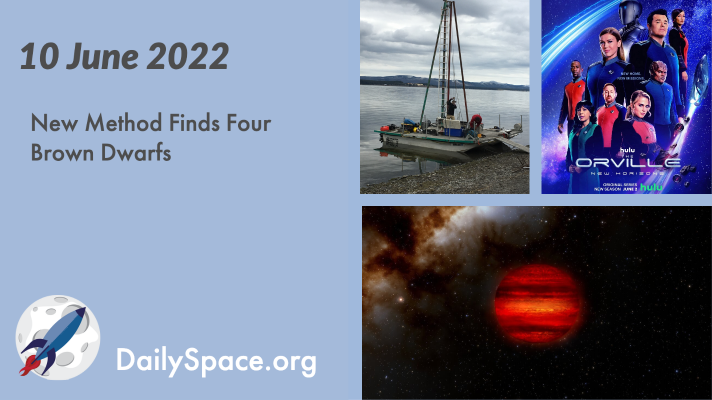
Jun 13, 2022 | Brown Dwarf, Earth, Exoplanets, Globular Cluster, Review, Volcanoes
Using data from the fabulous Gaia mission, researchers have detected four new brown dwarfs as well as several other unusual companions to 25 stars in the Milky Way. Plus, Yellowstone, Earth’s magnetic field, hot Jupiters, and a review of the first episode of The Orville: New Horizons.
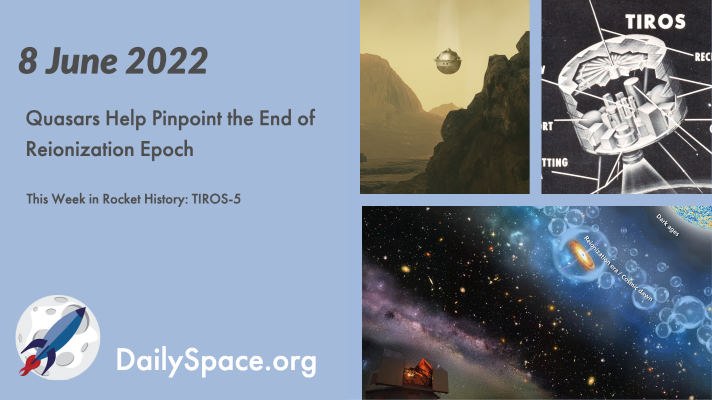
Jun 9, 2022 | Cosmology, Daily Space, Earth, Galaxies, JWST, Mars, Space History, Spacecraft, Venus
Using the radiation signatures of quasars, scientists have determined when the era of reionization ended in our universe – about 1.1 billion years after the Big Bang. Plus, an update on NASA’s MAVEN spacecraft, new Hubble and Chandra images, and This Week in Rocket History is the TIROS-5 weather satellite.
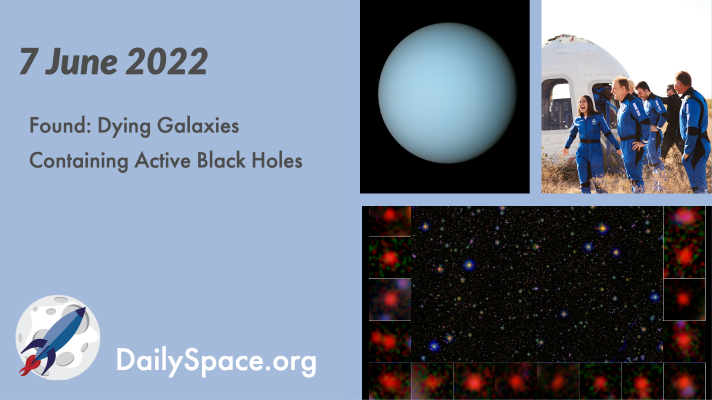
Jun 8, 2022 | Asteroids, Blue Origin, Climate Change, Cosmology, Crewed Space, Daily Space, Earth, Galaxies, Neptune, Rockets, ROSCOSMOS, Space China, Spacecraft, Supermassive Black Holes, Uranus
Astronomers combined observations of far distant galaxies exhibiting no signs of star formation and found active supermassive black holes that may have contributed to the evolution of their parent galaxies. Plus, rocket launches, detecting earthquakes, and why Uranus and Neptune are different shades of blue.
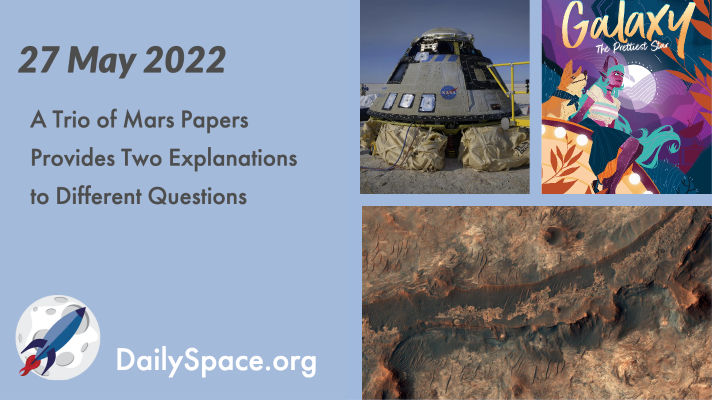
May 31, 2022 | Crewed Space, Daily Space, Earth, ESA, Mars, Perseverance, Review, Rockets, The Sun
Today, we take a look at three recent papers attempting to explain various phenomena on Mars. One uncovers the cause of discrete aurorae. Another explains the martian haze. And a third actually ends up with more questions than answers. Plus, Boeing’s OFT-2 returns to Earth, ESA’s Solar Orbiter makes its closest approach, and Dr. Pamela reviews the new graphic novel “Galaxy: The Prettiest Star” by Jadzia Axelrod.
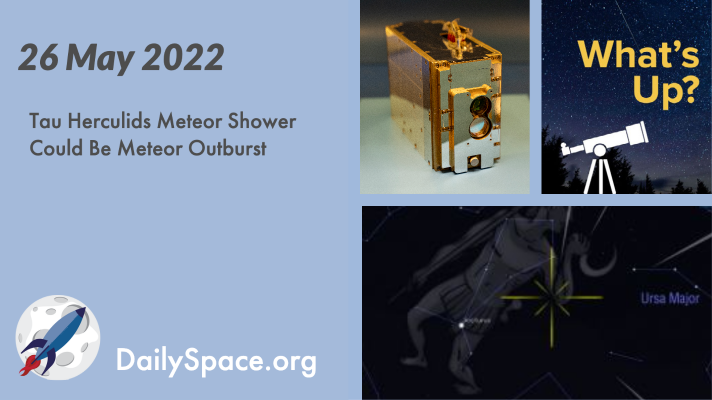
May 27, 2022 | Climate Change, Comets, Cosmology, Daily Space, Earth, Guest Interview, JWST, Rockets, Spacecraft, SpaceX
Due to the gravitational pull of Jupiter on the fragments and dust of comet 73P/Schwassmann-Wachmann, Earth’s orbit may be moving through a dense portion of the comet’s trail on May 31. This alignment could result in an unusually spectacular meteor outburst, and we’ll interview astronomer Pierre Martin about this possible event. Plus, a SpaceX launch that wasn’t Starlink, a new solar sail, and JWST.








 We record most shows live, on Twitch. Follow us today to get alerts when we go live.
We record most shows live, on Twitch. Follow us today to get alerts when we go live.